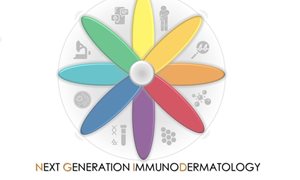 In the International Journal of Chronic Obstructive Pulmonary Disease Lonneke Boer and colleagues described the validity of an innovative software application that provides automated treatment advice to patients with COPD without the interference of a health care professional. This application was developed by the Department of Primary and Community Care in close collaboration with the departments of Pulmonary Diseases and Medical Psychology and the Institute of Computing Sciences of the Radboud University. In this publication, Lonneke and colleagues demonstrated that their application can safely be used in patients with COPD to support self-management in case of an exacerbation.
In the International Journal of Chronic Obstructive Pulmonary Disease Lonneke Boer and colleagues described the validity of an innovative software application that provides automated treatment advice to patients with COPD without the interference of a health care professional. This application was developed by the Department of Primary and Community Care in close collaboration with the departments of Pulmonary Diseases and Medical Psychology and the Institute of Computing Sciences of the Radboud University. In this publication, Lonneke and colleagues demonstrated that their application can safely be used in patients with COPD to support self-management in case of an exacerbation.
Background:
To support patients with COPD in their self-management of symptom worsening, we developed Adaptive Computerized COPD Exacerbation Self-management Support (ACCESS), an innovative software application that provides automated treatment advice without the interference of a health care professional. Exacerbation detection is based on 12 symptom-related yes-or-no questions and the measurement of peripheral capillary oxygen saturation (SpO2), forced expiratory volume in one second (FEV1), and body temperature. Automated treatment advice is based on a decision model built by clinical expert panel opinion and Bayesian network modeling. The current paper describes the validity of ACCESS.
Methods:
We performed secondary analyses on data from a 3-month prospective observational study in which patients with COPD registered respiratory symptoms daily on diary cards and measured SpO2, FEV1, and body temperature. We examined the validity of the most important treatment advice of ACCESS, ie, to contact the health care professional, against symptom- and event-based exacerbations.
Results:
Fifty-four patients completed 2,928 diary cards. One or more of the different pieces of ACCESS advice were provided in 71.7% of all cases. We identified 115 symptom-based exacerbations. Cross-tabulation showed a sensitivity of 97.4% (95% CI 92.0-99.3), specificity of 65.6% (95% CI 63.5-67.6), and positive and negative predictive value of 13.4% (95% CI 11.2-15.9) and 99.8% (95% CI 99.3-99.9), respectively, for ACCESS' advice to contact a health care professional in case of an exacerbation.
Conclusion:
In many cases (71.7%), ACCESS gave at least one self-management advice to lower symptom burden, showing that ACCES provides self-management support for both day-to-day symptom variations and exacerbations. High sensitivity shows that if there is an exacerbation, ACCESS will advise patients to contact a health care professional. The high negative predictive value leads us to conclude that when ACCES does not provide the advice to contact a health care professional, the risk of an exacerbation is very low. Thus, ACCESS can safely be used in patients with COPD to support self-management in case of an exacerbation.
Publication:
Validation of ACCESS: an automated tool to support self-management of COPD exacerbations.
Boer LM, van der Heijden M, van Kuijk NM, Lucas PJ, Vercoulen JH, Assendelft WJ, Bischoff EW, Schermer TR.
Lonneke Boer is member of the theme: Inflammatory diseases.
Related news items

Large NWA ORC grant awarded for national skin research: Next Generation ImmunoDermatology
23 March 2022Research for better treatment methods for chronic skin diseases.
go to page
VWS report on AI and describes added value of MonitAir app
1 February 2022 The report Social costs and benefits of Artificial Intelligence in healthcare from the Dutch Ministry of Health, Welfare and Sport was published. The researchers were positive about the smart app MonitAir, which was partly developed by Primary and Community Care of the Radboudumc. go to page
Participating in cancer research among people with intellectual disabilities
30 November 2021 Thanks to the support of the Maarten van der Weijden Foundation research was carried out into the participation of people with intellectual disabilities in (population) screening for cancer. go to page
General practice examines treatment and persistent complaints COVID-19 ZonMw grant for three major projects
3 August 2021 ZonMw has granted a total of 4.3 million euros for research into the treatment of COVID-19 and the symptoms that many people continue to have afterwards (Lung COVID). The research group of the department Primary and Community Care Medicine is co-applicant of these research projects. go to page

